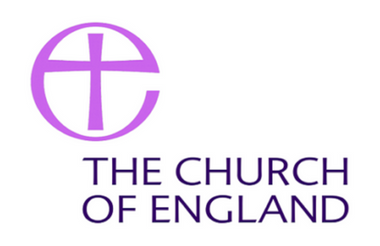The Church of England Pensions Board has voted against the re-election of Shell directors over the oil giant’s lack of progress on climate change.
In an online statement, the Board, which is a shareholder in Shell, expressed its dissatisfaction with the company after it showed weakened climate goals and lower investment into renewables and low-carbon energy.
The Board said it was concerned by Shell’s “insufficient” short and medium-term targets, adding that it can no longer offer its support to the firm.
Meanwhile, a recently published annual report shows that the Church Commissioners, the charity investment arm of the Church of England, reported a 5% return in 2022 compared with 13.3% the previous year.
A Shell spokesperson said the company strongly disagrees with the positions against Shell voting recommendations taken by the Church of England Pensions Board.
Shell has taken a ‘different path’
The Board said that it has been supporting Shell’s climate transition plan since 2021, noting the company’s commitment to be a net-zero business by 2050.
“While the plan was not perfect it was positioning Shell as a constructive actor in shaping the long-term transition,” the Board wrote in a statement.
However, it added that the company has since taken a “different path” and it has therefore decided to vote against the re-election of all Shell directors.
“Despite Shell posting record profits in 2022 and having the highest capital expenditure of $25bn among its peers, its capital expenditure into renewables and low-carbon energy is far lower than would be expected by a company seeking to shape a future in the transition.
“These investments are lower than your most comparable peer, BP. You are investing the most of your European peers in upstream oil and gas production.”
Short and medium-term goals are ‘insufficient’
The Board added that Shell’s short and medium-term goals “remain insufficient” and said it is prepared to restrict investment in the firm if it “does not see a change in direction”.
“It has been widely reported that you are reviewing your plan to reduce oil output during this decade, and the chair of Shell Australia has spoken out against more ambitious climate policy in that jurisdiction. Taken together this is deeply concerning.
“As a long-term institutional investor our duty is to our pension fund members and their long-term interests as well as the world they will retire into. These interests are not being served by the short-term approach that the company appears to be taking.”
Shell: ‘The vast majority of our investors remain supportive of our strategy’
A Shell spokesperson said: “We strongly disagree with the positions against Shell voting recommendations taken by PIRC, the LAPF, the PPGM, MN and the Church of England Pensions Board.
“Our strategy remains unchanged - to become a net-zero energy company by 2050 or sooner. And in the last year we’ve continued to invest in low-carbon energy and made very good progress towards our targets to reduce emissions.
“At the start of this year we completed our $2bn acquisition of a leading global biogas company, in the last 12 months we have increased the number of EV charge points we own or operate globally by more than 60%. At the same time, we will continue to invest in producing the energy the world needs today and for the foreseeable future. All of our investments have to provide a rate of return that our investors demand.
“We’re pleased the vast majority of our investors remain supportive of our strategy to become a net-zero emissions energy business by 2050.”
5% return despite challenging markets
Separately, the Church Commissioners posted a 5% return last year despite tough market conditions.
Overall, the investment fund it manages on behalf of the Church of England increased from £10.1bn to £10.3bn at 31 December 2022. Over the last decade, the fund has delivered an average return of 10.2% per annum.
The Church Commissioners committed to increase support for the Church to £1.2bn over the next three years, a 30% rise compared with the previous triennium.
It recorded a total income of £148.4m, £0.3m higher than in 2021, against expenditure of £176.9m (£226.4m in 2021).
Alan Smith, first church estates commissioner, said: “The Church Commissioners has continued to be responsible stewards in a challenging year. The strong and resilient returns over the last decade have enabled us to increase our distributions to the highest level in our history for the triennium ahead.
“Our successful bond issuance, raising £550m, will enable us to continue to pursue intergenerational equity and to maximise our support for the Church of England’s mission and ministry over the long term.”
Related articles













